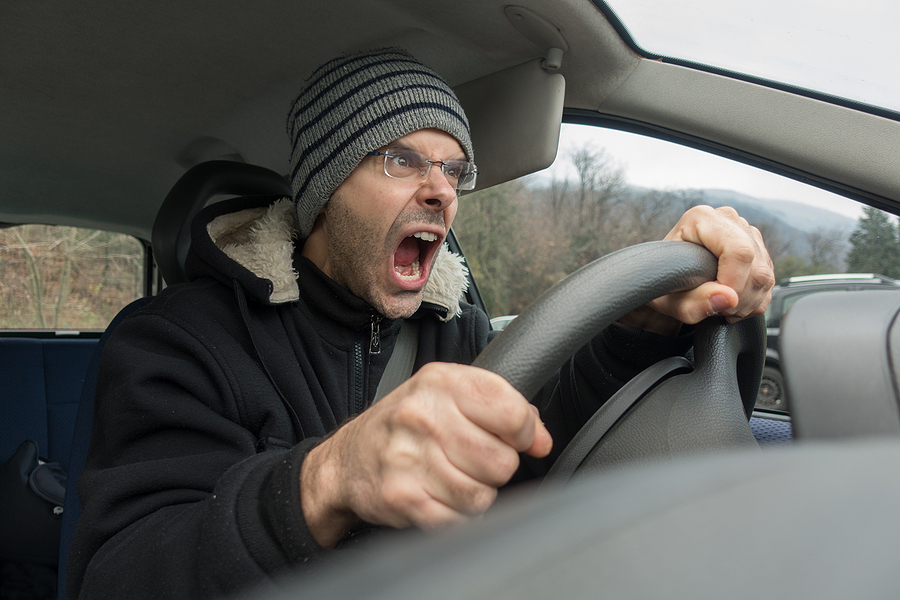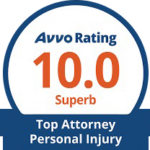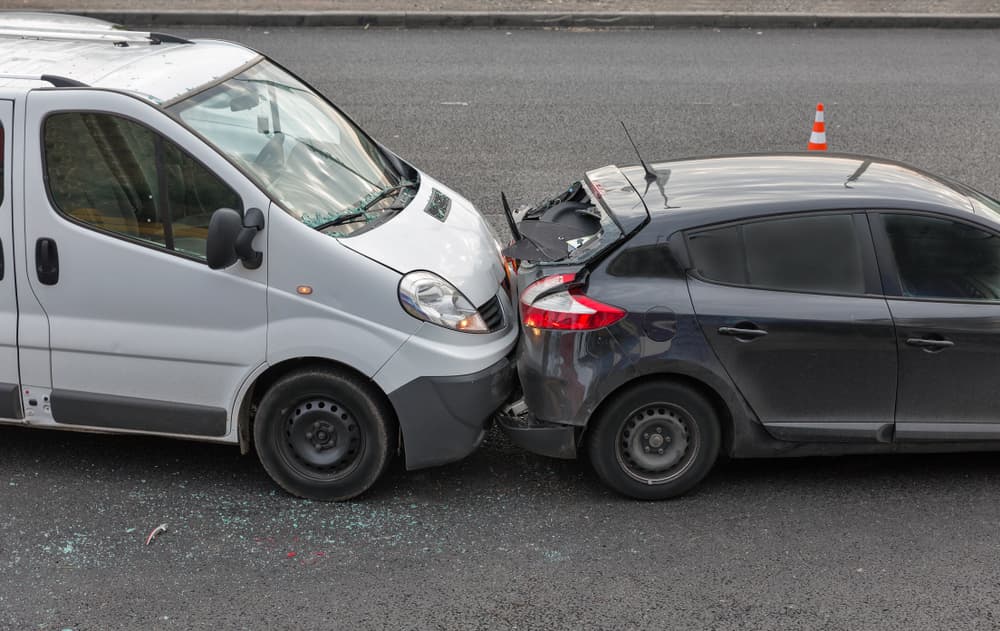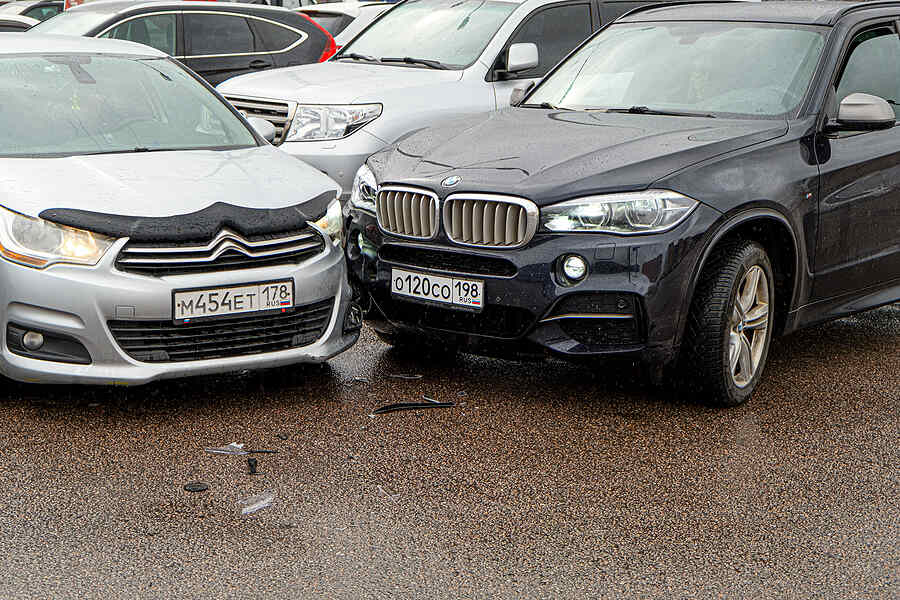
Every year, over half of all fatal car accidents in the U.S. involve aggressive driving behaviors like speeding, tailgating, or even intentional collisions. After the dust settles from such an incident, you might feel overwhelmed and unsure how to proceed.
What happens next?
From medical follow-ups to potential claims for compensation, there's a lot to consider. This guide will walk you through what you must do after the chaos, helping you understand the legal paths available to hold the reckless driver accountable.
If you’re struggling with injuries, mounting bills, or emotional trauma from a road rage accident in Chicago, reach out to our firm at (312) 924-7575. Our dedicated personal injury lawyers will evaluate your case and fight for your rights.
Schedule a Free Initial Consultation Today!
Table of Contents
Understanding Road Rage Accidents in Chicago
Road rage is more than just aggressive driving — it’s a volatile and often violent escalation of emotions on the road. Legally, road rage can encompass reckless driving behaviors as well as intentional acts of aggression, such as tailgating, verbal threats, or even physical assault.
In Illinois, acts of road rage can result in serious criminal charges, including reckless driving under Illinois Vehicle Code 625 ILCS 5/11-503, and in extreme cases, charges of assault or battery if the aggressor uses their vehicle as a weapon.
These incidents can quickly turn from tense to deadly. In one year, the AAA Foundation reported that over half of all fatal crashes involved at least one driver engaging in aggressive behaviors, including speeding or purposefully cutting off other vehicles.
Chicago, with its dense traffic and frequent road construction, presents the perfect environment for these volatile interactions.
In the Windy City, road rage incidents typically escalate when drivers feel frustrated by traffic, construction, or perceived slights.
This can lead to dangerous outcomes, including:
- Sideswipes or rear-end collisions from tailgating.
- T-bone accidents at intersections, where aggressive drivers may run red lights or fail to yield.
- Forcing vehicles off the road, potentially leading to rollovers or crashes with stationary objects.
What makes these accidents especially dangerous is the unpredictability. Unlike typical car accidents, road rage crashes are often intentional, meaning the at-fault driver isn't just careless—they're actively trying to cause harm. This raises the stakes for victims, both in terms of physical injury and legal recourse.
So, what should you do if you find yourself in this situation? Here’s what we recommend.
Seek Medical Attention and Document Injuries
Even if your injuries seem minor after a road rage accident, seek medical attention as soon as possible.
Many injuries, such as whiplash or traumatic brain injuries, may not show symptoms until days or weeks later. By delaying treatment, not only could you worsen your condition, but it might also complicate any future personal injury claim.
Why Medical Documentation is Essential
From a legal perspective, medical records are a cornerstone of any personal injury claim. They provide clear, unbiased evidence of your physical condition and how the accident has impacted your health. For example, under Illinois law, you can seek compensation for medical expenses as part of your damages.
This includes:
- Immediate medical treatments such as ER visits or surgeries.
- Ongoing rehabilitation for injuries that require physical therapy.
- Prescription medication costs related to pain management or recovery.
If you wait too long to see a doctor, the at-fault party’s insurance company may argue that your injuries aren’t as serious as claimed or are unrelated to the accident. A clear timeline of medical treatment, starting as soon as possible after the crash, strengthens your case.
Gather Evidence and Documentation

Once you’ve sought medical attention, the next step is gathering and preserving evidence to strengthen your road rage accident claim. The success of your case hinges on your ability to prove that the other driver’s aggressive behavior directly caused the accident and your injuries.
Fortunately, you can collect evidence after the fact to support your claim.
Key Pieces of Evidence
- Police Report: After a road rage accident, a police report will often document important evidence. You can request a copy of the police report from the police department, which will include details of the incident, statements from both drivers, and potentially witness information.
- Witness Statements: If bystanders or other drivers saw the accident, contact them as soon as possible and ask for their written statements, contact information, and any additional details they can recall.
- Dashcam or Surveillance Footage: Dashcam recordings can capture critical moments leading up to the accident, especially in cases where road rage behavior escalates into dangerous driving. Additionally, nearby businesses or traffic cameras may have footage of the incident. Request and preserve this footage quickly, as many businesses delete recordings after a short period.
- Photos of Vehicle Damage and Injuries: Visual evidence is often more compelling than written descriptions. Take clear photos of the damage to your vehicle, the scene of the accident, and any visible injuries.
- Documentation of Communication: If the aggressive driver made threats or engaged in hostile actions (such as yelling or gesturing), note the details of these interactions. Any text messages or emails exchanged after the incident could also serve as important evidence.
Preserving Evidence for Legal Claims
Evidence can deteriorate or be lost over time, so you must preserve everything you gather. For example:
- Request copies of medical records and keep a detailed log of any follow-up visits, prescriptions, or ongoing treatments.
- Safeguard any repair estimates or receipts for vehicle damage.
- Retain all correspondence with the insurance companies involved, as this can show the negotiation process and any lowball offers.
Legal Recourse: Filing a Claim Against the Aggressor
Under Illinois law, if the other driver’s reckless or intentional actions led to your injuries, you may be able to pursue a personal injury claim. Road rage incidents often qualify as negligence or even intentional torts, depending on the severity of the aggressor's behavior. Here’s what you need to know about the legal avenues available.
Proving Negligence in a Road Rage Claim
To file a successful personal injury claim, you must prove that the other driver was negligent.
In Illinois, you may establish negligence through four key elements:
- Duty of Care: All drivers owe a duty of care to others. This means you can expect others to drive safely and avoid causing harm.
- Breach of Duty: In road rage incidents, actions like tailgating, brake-checking, or aggressive swerving can easily qualify as breaches of duty.
- Causation: You’ll need to prove that the driver’s aggressive behavior was the direct cause of the accident and your injuries.
- Damages: You must show that the accident resulted in tangible losses, such as medical bills, lost wages, or property damage.
In many road rage accidents, proving that the other driver acted negligently or recklessly is straightforward. Actions like speeding, swerving, or threatening behavior on the road create a clear pattern of recklessness that breaches their duty of care.
Potential Damages You Can Recover
Once you establish negligence, you may recover compensation for:
- Medical Expenses: This includes both current and future medical bills related to injuries from the accident.
- Lost Wages: If your injuries prevented you from working, you can recover lost income. In severe cases, this may include future lost earning potential.
- Pain and Suffering: Non-economic damages, like emotional distress or trauma, are also recoverable. These are particularly relevant in road rage incidents, which can cause psychological harm such as anxiety or PTSD.
- Property Damage: Compensation for repairs or replacement of your vehicle or any damaged personal belongings.
- Punitive Damages: Damages awarded if the aggressor’s actions are deemed especially reckless or malicious.
Filing an Insurance Claim
In Illinois, all drivers must carry minimum insurance coverage (625 ILCS 5/7-601). After a road rage accident, you’ll likely start by filing a claim with the aggressive driver’s insurance company.
However, insurers may try to reduce your compensation by disputing the severity of your injuries or claiming you bear partial fault. A personal injury attorney can ensure that the insurance company treats you fairly and offers a reasonable settlement.
If the insurance company refuses to offer an adequate settlement, your lawyer may advise filing a lawsuit against the at-fault driver. In Illinois, the statute of limitations for personal injury claims is generally two years from the accident date (735 ILCS 5/13-202), so act promptly.
Potential Legal Consequences for the Aggressive Driver
Road rage incidents can lead to significant legal consequences for the driver responsible. In Illinois, aggressive drivers who cause accidents can face both civil and criminal penalties, depending on the severity of their actions.
Understanding these consequences can also strengthen your civil case for damages, as a driver’s criminal behavior may support your claim of negligence or intentional harm.
Criminal Charges for Road Rage in Illinois
Road rage often crosses the line into criminal behavior.
Depending on the actions of the aggressive driver, the court may charge them with:
- Reckless Driving: Defined as operating a vehicle with a willful disregard for the safety of people or property. This is typically a misdemeanor, but it can escalate to a felony if someone is seriously injured.
- Assault or Battery: If the driver physically threatens or harms you, it may be possible to file charges of assault or battery. In Illinois, battery occurs when someone knowingly causes bodily harm or makes physical contact of an insulting or provoking nature. If the driver uses their vehicle as a weapon, these charges can become even more severe.
- Aggravated Assault (720 ILCS 5/12-2): If the driver’s actions involve a deadly weapon, such as a vehicle, they may face aggravated assault charges, which can carry harsher penalties, including jail time.
- Criminal Damage to Property (720 ILCS 5/21-1): If the driver intentionally damages your vehicle or property during the road rage incident, they could be charged with criminal damage.
The Impact of Criminal Proceedings on Your Civil Case
If the court convicts the aggressive driver of a crime, this can significantly bolster your civil claim.
Criminal convictions serve as strong evidence that the driver’s actions were intentional or reckless, making it easier to prove liability in a civil court. For instance, a conviction for reckless driving or aggravated assault could help substantiate your claim for punitive damages.
Courts handle civil cases and criminal cases separately. Even if no court convicts the driver of a crime, you can still pursue a civil lawsuit.
The burden of proof in a civil case is lower than in a criminal case, so even if the criminal charges don’t lead to a conviction, you may still prove the driver’s liability by a preponderance of the evidence.
How Your Attorney Can Help
Navigating both the civil and criminal aspects of a road rage accident can be overwhelming. An attorney can help you monitor the criminal case and use any relevant information to support your civil claim.
This includes gathering evidence from the criminal proceedings, such as police reports, witness statements, or any plea deals or convictions, and applying them to strengthen your case for compensation.

Get the Legal Assistance You Need
If a road rage accident injures you in Chicago, don’t face it alone. Contact our firm today at (312) 924-7575 for a free consultation, and let us help you secure the justice and compensation you deserve.
Abels & Annes, P.C.
100 N LaSalle St #1710
Chicago, IL 60602
(312) 924-7575



